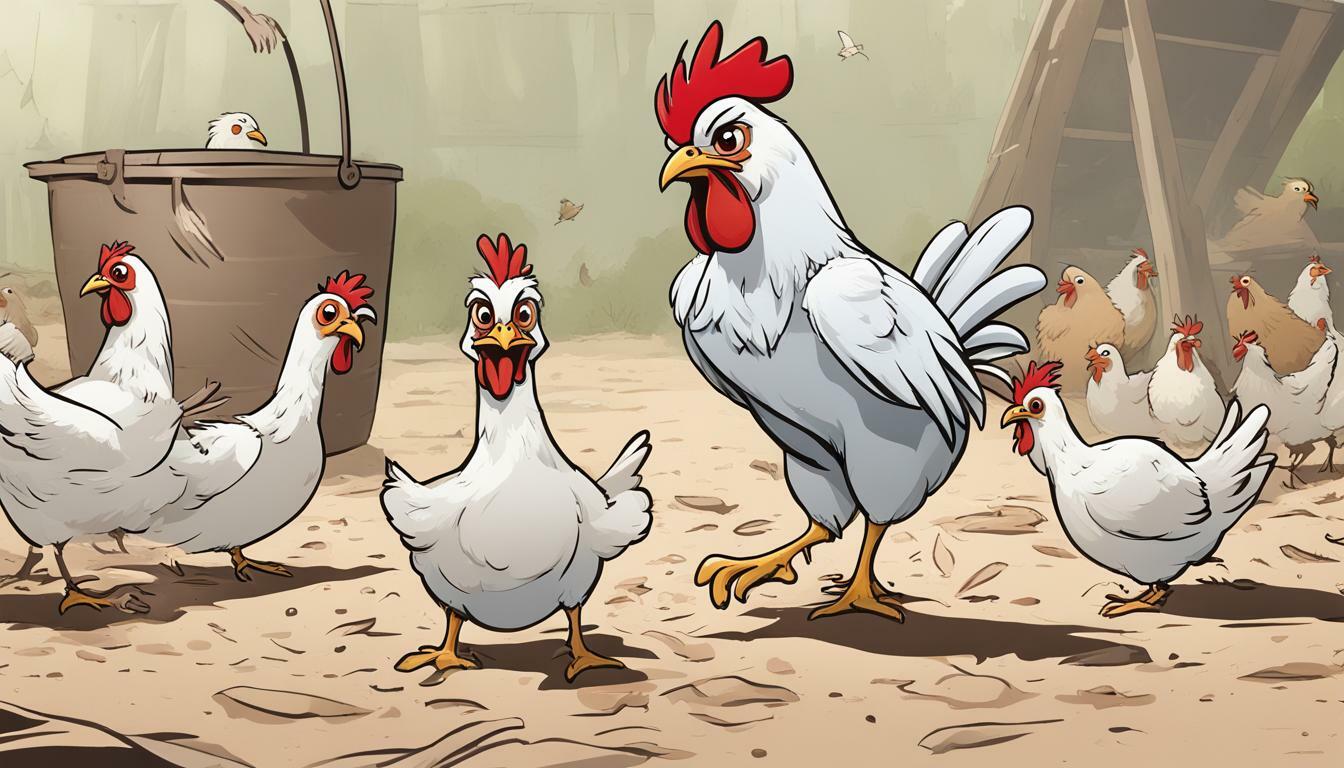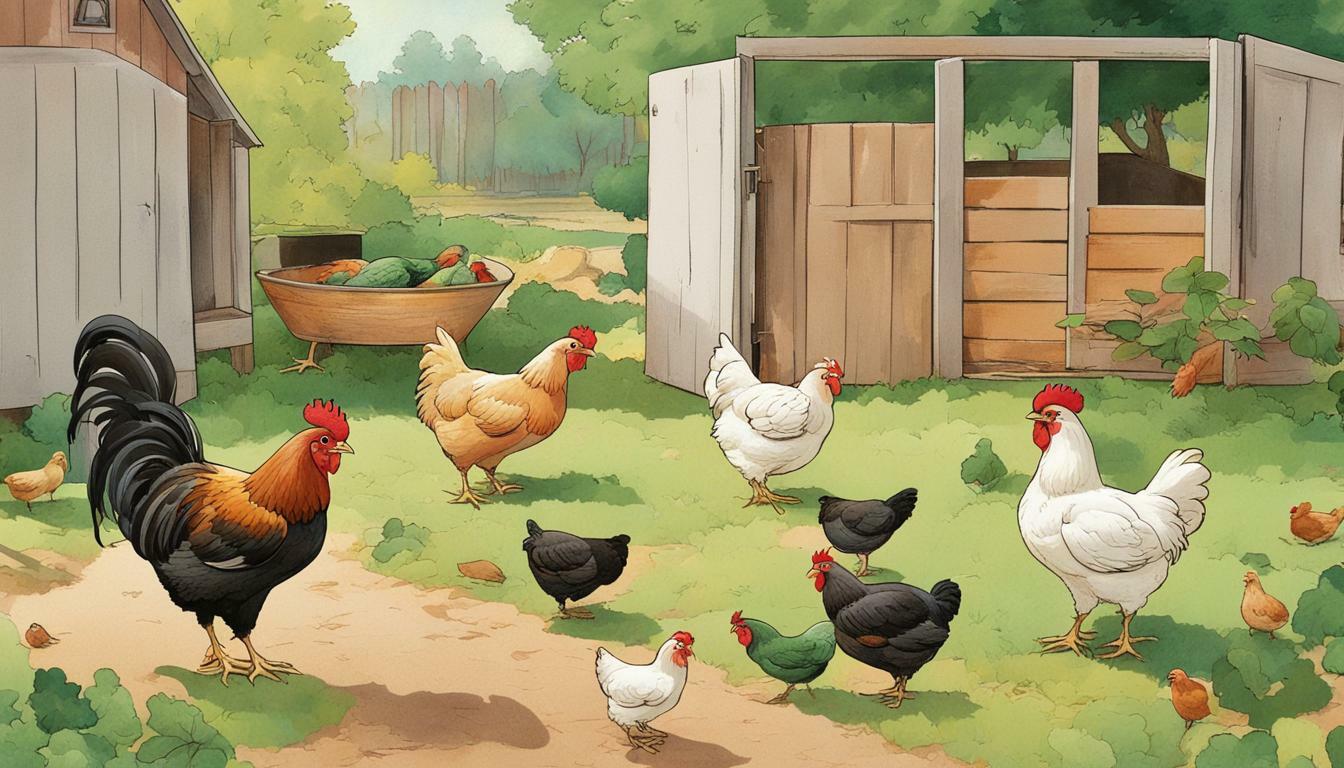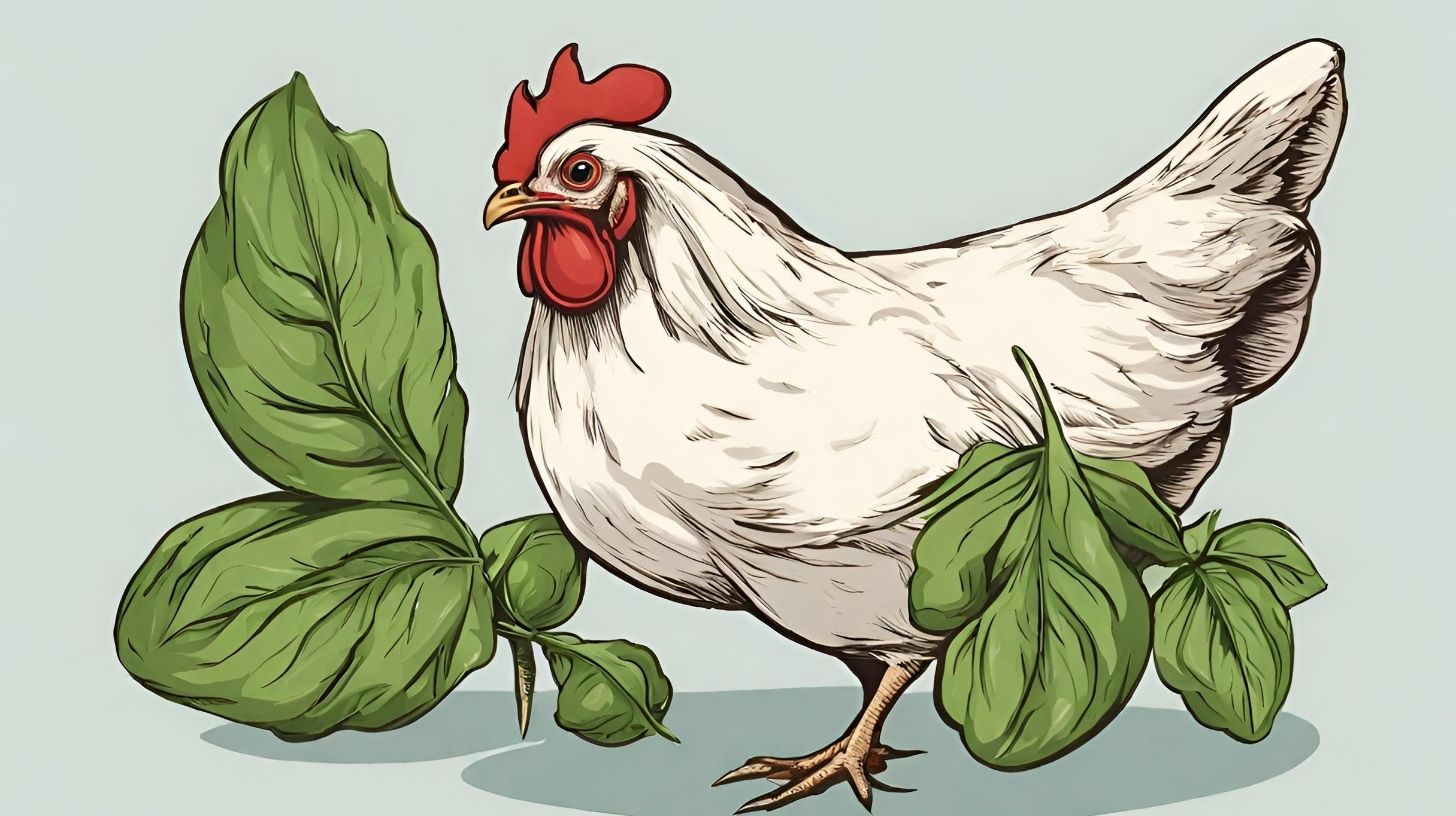Why do Chickens Attack Humans?

Table of content:
Chickens attacking humans may seem bizarre, but it’s actually more common than you might think. Territorial roosters, overprotective hens guarding chicks, and even normally docile chickens can suddenly become aggressive and lash out at perceived threats.
Understanding chicken behavior and psychology is key to answering the question of why chickens attack. While startling, their aggressive pecking and clawing are often motivated by natural instincts to protect themselves, their flock, and their territory. With some caution and preparation, you can prevent and safely handle chicken attacks.
Reasons Chickens Become Aggressive Towards Humans
Territoriality
Chickens are highly territorial animals. Roosters in particular will defend areas they consider their domain. Their territory can include a whole yard, coop, or just a small area the rooster claims. When a human enters that space, the rooster sees it as a threat and attacks to drive the intruder away.
Roosters will even fight their own reflections thinking they are an invading rooster. Any newcomers to the flock or environment can also trigger an aggressive response as they are viewed as trespassers.
Protecting Hens and Chicks
Mother hens have extremely strong protective instincts for their chicks. They will viciously attack any humans or animals that approach baby chicks. This reaction is strongest in the first few weeks after hatching when chicks are most vulnerable.
Some hens will even become aggressive while simply sitting on eggs to incubate them. The protective mothering instinct kicks in before chicks even hatch!
Perceived Predator
Due to their place near the bottom of the food chain, chickens maintain a constant watch for predators. Fast movements, direct eye contact, reaching hands, or loud noises can set off a chicken’s fight-or-flight response. They may interpret these actions as signs of an attacking predator.
Humans who make sudden movements near chickens or attempt to catch them can become targets of their preemptive self-defense. Chickens essentially attack humans in the same way they would strike at a fox or hawk.
Fear and Stress
Chickens use pecking and clawing to establish dominance and social hierarchy in their flock. When chickens feel stressed or fearful, this pecking behavior can get redirected to humans.
Common stressors that lead to increased aggressiveness include:
- Overcrowding
- Confinement in small spaces
- Insufficient food, water, or resources
- Disruption of social order and hierarchy
- New environments or unfamiliar handling
Frightened, stressed chickens may frantically peck and claw at any human that tries to interact with them.
Rooster Instincts and Hormones
Roosters have certain physical traits and hormonal drives that influence aggression levels. Large combs and wattles can limit vision and get chickens into more confrontations. Higher testosterone levels cause roosters to be more territorial.
Certain breeds like Rhode Island Reds have been selectively bred to mature earlier and produce more eggs. As a result, they often have more aggressive juvenile rooster behaviors.
Illness, Pain, or Parasites
Sick chickens feel weak, vulnerable, and irritated. They tend to act more aggressively to keep potential threats away. External parasites like mites also provoke aggressive pecking.
Pecking attacks on humans may actually be a chicken’s reaction to internal pain or illness. They lash out from fear and self-preservation instincts.
Resource Guarding
When resources like food, water, or nesting areas are limited, chickens can become protective. They will strike out at humans to guard their share. Roosters may prevent hens from accessing resources to maintain control.
Free-ranging chickens that forage naturally are less likely to resource guard compared to confined chickens. Restricting access to resources brings out aggressive resource guarding behavior.
Boredom and Lack of Stimulation
Chickens are highly intelligent, inquisitive, and social birds. When denied an outlet for natural behaviors, they can resort to aggression and attacking humans. Lack of exercise space to roam, foraging opportunities, or social dynamics leads to restlessness, stress, and acting out.
Free-range chickens with enrichment occupy their time and energy in positive ways. Chickens confined to small spaces attack out of boredom and frustration.
Natural Instincts and Hierarchy
While domesticated, chickens retain many instincts and behaviors from their junglefowl ancestors. Establishing pecking order by asserting dominance is part of their natural social structure. Chickens use aggressive pecking and clawing to determine flock hierarchy.
Roosters instinctively want to dominate their environment. Chickens lower in the pecking order get bullied by more dominant chickens. Unfortunately, humans are seen as intruders disrupting the natural order.
How to Prevent Chicken Attacks
While not entirely predictable, there are many steps you can take to avoid chicken aggression and attacks:
Handle with Care
Avoid making fast movements and maintain slow, deliberate actions around chickens. Don’t corner chickens or reach over their heads to grab them. This triggers an aggressive defensive response. Use nets or your hands in gentle scooping motions when catching chickens.
Give Them Space
Allow chickens room to move comfortably away from you. Don’t overcrowd the coop or run. Chickens need to establish territories and social order without feeling crowded.
Keep Resources Plentiful
Provide adequate space for feeding, roosting, nesting, and dust bathing. Ensure adequate food and clean water to prevent resource guarding. Discourage fighting by providing multiple resources distributed widely in runs.
Keep Roosters Separate
Only keep one rooster per flock. Extra roosters will fight and become aggressive. House roosters away from hens except during breeding. Keep roosters confined when children or strangers are interacting with chickens.
Handle Roosters Cautiously
Roosters see their caretakers as part of their flock. Limit handling and hold roosters low against your body to discourage seeing you as a challenger. Carry a stick or rake when entering rooster territory as a deterrent.
Give Plenty of Exercise Space
Allow chickens to roam freely and exhibit natural behaviors. Chickens in smaller confined spaces are more likely to attack out of stress or boredom. Free ranging provides mental and physical stimulation.
Discourage Territorialism
Discourage roosters from claiming territory that includes human areas like the coop entrance or feed room. Restrict access instead of entering their territory and challenging them unnecessarily.
Get Them Accustomed to Handling
Handle chickens regularly from a young age so they become accustomed to humans. Avoid reinforcement of bad behaviors. Pick up and hold aggressive chickens firmly but gently to establish dominance.
Keep Stress Levels Low
Minimize disruptions to flock order and environment. Introduce new chickens gradually and supervise integration. Reduce crowding, confinement, and noise. Maintain a consistent daily routine for care and feeding.
Avoid Keeping Very Aggressive Breeds
Some breeds like Gamefowl are bred specifically for aggression. Avoid keeping extremely territorial or protective breeds if chickens interacting safely with humans is important.
With proper handling and housing, most standard breeds can become docile companions. Certain breeds like Orpingtons, Cochins, and Wyandottes tend to be calmer as well.
How to React to a Chicken Attack
If a chicken starts to act aggressively, there are some strategies you can use to safely diffuse the situation:
Move Slowly and Don’t Turn Your Back
Calmly walk away without running or turning your back. Maintain eye contact and resist flailing or kicking. Sudden movements will be seen as further threats.
Carry a Barrier like a Board or Stick
Hold the barrier between yourself and the attacking chicken. You can also gently nudge or block the chicken with the stick without hurting them. This creates space and deters continued attacks.
Cross Your Arms and Hunker Down
If you can’t escape, crouch down and cross your arms to protect your face and head. Many minor chicken attacks resolve themselves once the chicken feels it has scared off the intruder.
Pick Up and Restrain Flapping Chickens
Wearing thick gloves, pick up flapping chickens firmly holding both wings against their body. This bear hug technique restricts movement and calms them. Hold them against your chest until relaxed, then release.
Remove the Source of Agitation
If a hen is attacking over chicks, create separation from the perceived threat. If a rooster is guarding an area, change your route instead of challenging his domain. Eliminate the trigger and the attacks will stop.
Use a Water Spray as Negative Reinforcement
Keep a spray bottle on hand when entering chicken areas. A harmless spray of water on attacking chickens provides immediate negative feedback. They learn approaching means an unpleasant spraying.
Remove Persistently Aggressive Chickens
Rehoming aggressive chickens should be a last resort. But chickens who relentlessly attack may need to be moved for everyone’s safety and wellbeing. Rehoming to a farm is preferable over culling.
Get Help Handling Serious Injuries
Seek medical care if chicken attacks result in infected wounds or serious injuries. Aggressive chickens may need further evaluation by a veterinarian. Your safety always comes first when handling chicken attacks.
Final Thoughts
Chicken attacks most often arise out of protectiveness, fear, or territorial instincts. While aggressive chickens can be startling, there are many steps caretakers can take to prevent undesirable pecking and encourage docile behavior.
Approaching chicken aggression carefully and deliberately can mitigate the danger. Providing chickens with proper care, space, and enrichment fulfills their needs and minimizes stress. With time, positive human interaction helps bond chickens to their caretakers.
Rather than a threat, consider aggressive chickens a reminder of their complex cognitive abilities and strong maternal priorities. Work within the chicken’s instincts, not against them, and you can build an amicable relationship with these fascinating birds. With care and caution, chickens and humans can safely and enjoyably coexist.
Welcome. I’m Adreena Shanum, the proud owner of this website, and I am incredibly passionate about animals, especially poultry. I founded adreenapets.com as a labor of love, stemming from my desire to share my knowledge and experiences with poultry enthusiasts worldwide.




